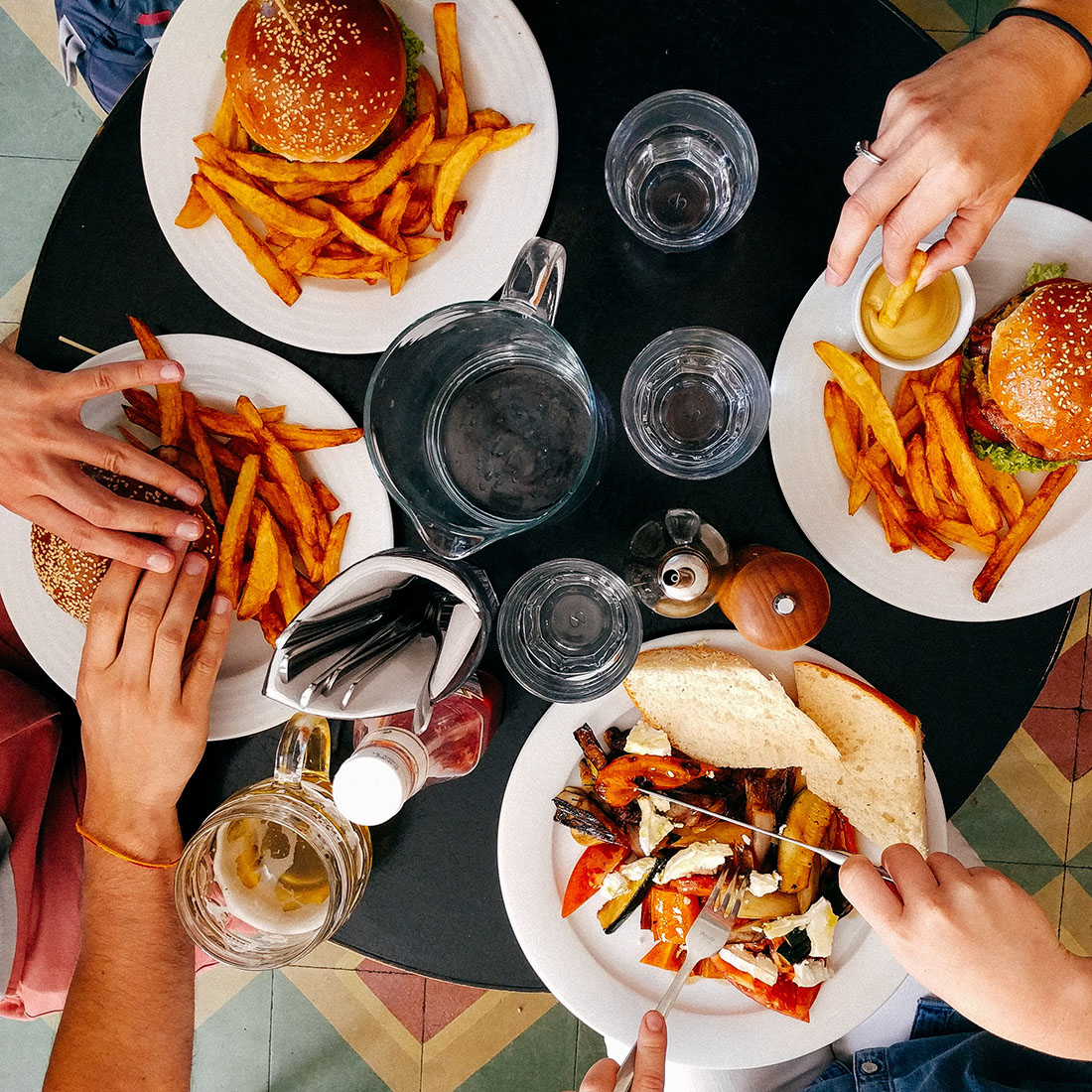
Let’s have a serious chat about the concept of “food addiction” that has been floating around lately. 🍽️❌ Here are some popular thoughts about food addiction – those that are close to right and those that are flat out wrong.
🚫 Myth 1: Food is Addictive – False! 🍕❌
Contrary to popular belief, food itself is not addictive. Our bodies require nourishment to function properly, and eating is a natural and necessary behavior. While certain foods may be more palatable or trigger cravings, it doesn’t mean we are “addicted” to them like substances. Addictive substances are those that are foreign to the body and impact mood and metal functioning – like nicotine, alcohol, and drugs of abuse like heroin and cocaine.
🚫 Myth 2: Food Triggers Dopamine Release – True, but Misinterpreted! 🍟💥
Yes, indulging in delicious food can lead to the release of dopamine, the feel-good neurotransmitter. However, dopamine release occurs in response to many pleasurable activities, such as spending time with loved ones or engaging in hobbies. It’s a normal part of our brain’s reward system, not a sign of addiction. Hug a puppy – it’s the same ‘hit’ of pleasure!
🚫 Myth 3: Lack of Control = Food Addiction – Not Quite! 🍩🙅♀️
Struggling with occasional overeating or feeling out of control around food doesn’t necessarily equate to addiction. Many factors contribute to these behaviors, such as emotions, situations, lack of nutrition, or even restrictive dieting. Labeling it as addiction oversimplifies a complex relationship with food.
🚫 Myth 4: “Food Addicts” Need to Go Cold Turkey – Inaccurate! 🍔🚫🦃
Unlike substance addictions, complete abstinence from food is impossible and unhealthy. Building a positive relationship with food involves mindful eating, honoring hunger and fullness cues, and finding balance. It’s about nourishing our bodies and enjoying the culinary experiences life offers. Self compassion plays a big role, too. Don’t pathologize your relationship with food, find ways to be true to yourself and heal those old behaviors.
Besides, there isn’t good science to support the idea of food addiction. Following is some info that further defines food addiction and debunks the concept.
Understanding Food Addiction
Food addiction refers to a condition where individuals allegedly exhibit uncontrollable cravings and consumption patterns toward specific foods, often high in sugar, fat, or salt. Proponents of the food addiction theory argue that these highly palatable foods trigger pleasure centers in the brain, leading to addictive-like behaviors.
The Dispute: Lack of Consistent Evidence
Scientific research has attempted to establish a clear link between certain foods and addictive behavior. However, numerous studies have failed to provide conclusive evidence supporting the existence of food addiction. One major challenge in studying food addiction is the lack of consensus on its definition and diagnostic criteria. Unlike substance addiction, there is no universally accepted method to diagnose food addiction in individuals.
Neurobiological Studies
Many of the arguments for food addiction are based on neurobiological studies, which analyze brain responses to certain foods. These studies often use brain imaging techniques to observe brain activity in response to food consumption. While some research has shown similarities in brain responses between highly palatable foods and drugs, these findings do not definitively prove food addiction.
One key criticism is that brain responses to pleasurable stimuli, including food, are inherently complex and influenced by multiple factors such as individual differences, cultural influences, and past experiences. This makes it challenging to isolate food-specific addictive responses.
Lack of Withdrawal Symptoms
One of the defining features of addiction is the presence of withdrawal symptoms when the addictive substance is removed. However, studies exploring food withdrawal have largely come up empty-handed. Unlike drug addicts who experience severe physical and psychological withdrawal symptoms when they stop using, individuals who supposedly have food addiction do not display such effects when they abstain from certain foods.
Alternative Explanations for Overeating
The concept of food addiction often overlooks other plausible explanations for overeating. Psychological factors, stress, emotional eating, and poor dietary habits are all well-established contributors to excessive food consumption. Moreover, cultural and societal influences play a crucial role in shaping our eating behaviors.
The Role of Reward and Pleasure
It is essential to recognize that the human brain is wired to seek out pleasurable experiences, including those related to eating. The pleasure derived from consuming delicious food is a fundamental aspect of human survival. Our brains reward us for eating calorie-dense foods because it ensured our ancestors’ survival during times of scarcity. This is exemplified in the modern day habit of dieting, where ongoing food and calorie restriction is followed by seemingly out of control eating (binging), wherein the body is trying to balance out the deprivation.
Conclusion
While the idea of food addiction has gained traction in the media and popular culture, the scientific evidence to support it remains unconvincing. Numerous studies have sought to establish a clear link between certain foods and addictive behavior, but the results have been inconsistent and inconclusive.
The lack of agreed-upon diagnostic criteria and the absence of withdrawal symptoms cast doubt on the existence of food addiction. Instead of labeling certain foods as addictive, it is essential to recognize the multifaceted nature of overeating, which can be influenced by numerous factors, including psychological, social, and cultural elements. Further research is needed to better understand the complexities of human eating behavior and to address issues related to overconsumption in a comprehensive and evidence-based manner.
Remember, we all have different relationships with food, and it’s essential to approach it with compassion and understanding. Let’s focus on promoting a healthy, balanced perspective rather than perpetuating myths that stigmatize our love for good food! 🌱🍓🥗


0 Comments